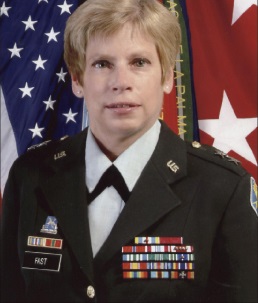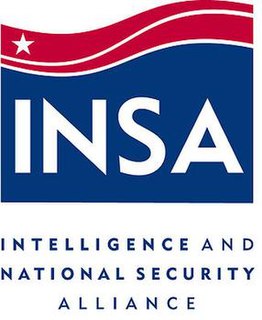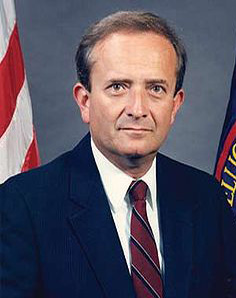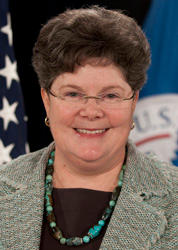Related Research Articles

The United States National Security Council (NSC) is the principal forum used by the President of the United States for consideration of national security, military, and foreign policy matters. Based in the White House, it is part of the Executive Office of the President of the United States, and composed of senior national security advisors and Cabinet officials.

The Ministry of Defence is the British government department responsible for implementing the defence policy set by Her Majesty's Government, and is the headquarters of the British Armed Forces.

Defence Intelligence (DI) is an organisation within the United Kingdom intelligence community which focuses on gathering and analysing military intelligence. It differs from the UK's intelligence agencies in that it is an integral part of a government department – the Ministry of Defence (MoD) – rather than a stand-alone organisation. The organisation employs a mixture of civilian and military staff and is funded within the UK's defence budget. The organisation was formerly known as the Defence Intelligence Staff (DIS), but changed its name in 2009.

The Director of Central Intelligence (DCI) was the head of the American Central Intelligence Agency from 1946 to 2005, acting as the principal intelligence advisor to the President of the United States and the United States National Security Council, as well as the coordinator of intelligence activities among and between the various U.S. intelligence agencies.
A cabinet secretary is usually a senior official who provides services and advice to a cabinet of ministers as part of the Cabinet Office. In many countries, the position can have considerably wider functions and powers, including general responsibility for the entire civil service.

Stephen Anthony Cambone was the first United States Under Secretary of Defense for Intelligence, a post created in March 2003. Cambone first came to the attention of the public at large during the testimony of Major General Antonio Taguba before the U.S. Senate Armed Services Committee, where he disputed the General's statement that prison guards were under the effective control of military intelligence personnel and interrogators. Cambone resigned at the beginning of 2007 and was replaced by James R. Clapper, Jr., former head of the Defense Intelligence Agency (DIA) and the National Geospatial-Intelligence Agency. Cambone was associated with the Project for the New American Century, participating in the study which resulted in the writing of the report Rebuilding America's Defenses.

The United States Senate Select Committee on Intelligence is dedicated to overseeing the United States Intelligence Community—the agencies and bureaus of the federal government of the United States that provide information and analysis for leaders of the executive and legislative branches. The Committee was established in 1976 by the 94th Congress.

Barbara Fast is a retired major general of the United States Army. One of the first female officers placed in many challenging and dangerous situations and assignments, Fast is a member of the Military Intelligence Corps Hall of Fame. She was the first female to command an Army Military Intelligence Tactical Exploitation Battalion and the first female Intelligence Officer/G2 of a combat division. Her expertise spans across intelligence and cybersecurity.

The National Command Authority,, is the apex civilian-led command to oversee the employment, policy formulation, exercises, deployment, research and development, and operational command and control of Pakistan's nuclear arsenals.

Agum Gumelar is a politician and former general of the Indonesian National Armed Forces. He is a former minister having held several positions, a former chairman of Indonesian Football Association and National Sports Committee of Indonesia. He is an alumnus of the National Military Academy in Magelang, Central Java and Medical Faculty of Padjadjaran University in Bandung, West Java. In 1998, he received a master's degree from American World University, an organization forbidden to operate in 2005 because of its diploma mill action.

The Intelligence and National Security Alliance (INSA) is a non-profit, nonpartisan 501(c)(6) professional organization for public and private sector members of the United States Intelligence Community, based in Arlington, Virginia.

John Alexander Gordon was an American air force general who served as Deputy Director of the Central Intelligence Agency. He also served as the President's Homeland Security advisor from 2003 to 2004.
The Public Interest Declassification Board (PIDB) is an advisory committee established by the United States Congress with the official mandate of promoting the fullest possible public access to a thorough, accurate, and reliable documentary record of significant U.S. national security decisions and activities. The Board is composed of nine individuals: five appointed by the President of the United States and one each appointed by the Speaker of the House, House Minority Leader, Senate Majority Leader, and Senate Minority Leader. Appointees must be U.S. citizens preeminent in the fields of history, national security, foreign policy, intelligence policy, social science, law, or archives.
United States Intelligence Community Oversight duties are shared by both the executive and legislative branches of the government. Oversight, in this case, is the supervision of intelligence agencies, and making them accountable for their actions. Generally oversight bodies look at the following general issues: following policymaker needs, the quality of analysis, operations, and legality of actions.
At various times since the creation of the Central Intelligence Agency, the Federal government of the United States has produced comprehensive reports on CIA actions that marked historical watersheds in how CIA went about trying to fulfill its vague charter purposes from 1947. These reports were the result of internal or presidential studies, external investigations by congressional committees or other arms of the Federal government of the United States, or even the simple releases and declassification of large quantities of documents by the CIA.

Dennis Mark Nagy was acting Director of the Defense Intelligence Agency from September 1991 to November 1991.

Caryn Wagner was the Department of Homeland Security’s Under Secretary of Homeland Security for Intelligence and Analysis from February 11, 2010, to December 21, 2012. As such, she was DHS’s Chief Intelligence Officer (CINT), in charge of the DHS Office of Intelligence and Analysis with responsibilities over the DHS component intelligence services. She was the first woman to serve in this position, after extensive experience in the U.S. Intelligence Community and on Capitol Hill.
Lawrence B. Prior is a US businessman who has also served in the US military, and worked in public administration.
The Boren-McCurdy intelligence reform proposals were two legislative proposals from Senator David Boren and Representative Dave McCurdy in 1992. Both pieces of legislation proposed the creation of a National Intelligence Director. Neither bill passed into law.

National Intelligence Service (Kenya) which was previously known as the National Security Intelligence Service (NSIS) is both the (national) domestic and foreign intelligence agency of Kenya. It had its origins in "Special Branch" a department of the national police that was created in 1952 under the British administration. Among other things it provided intelligence during the Mau Mau uprising.